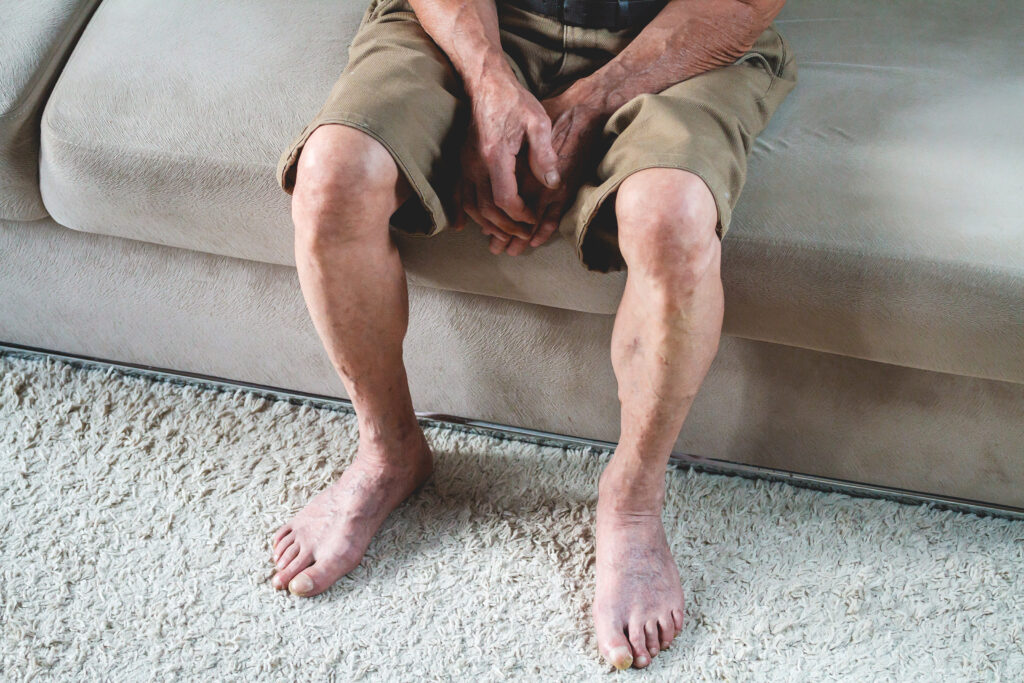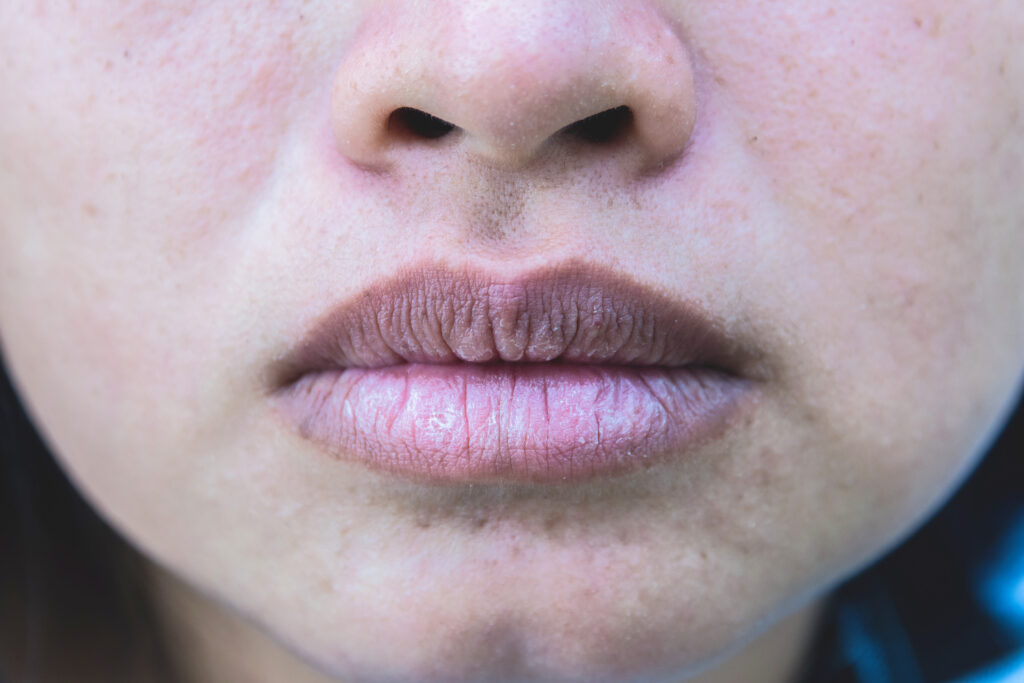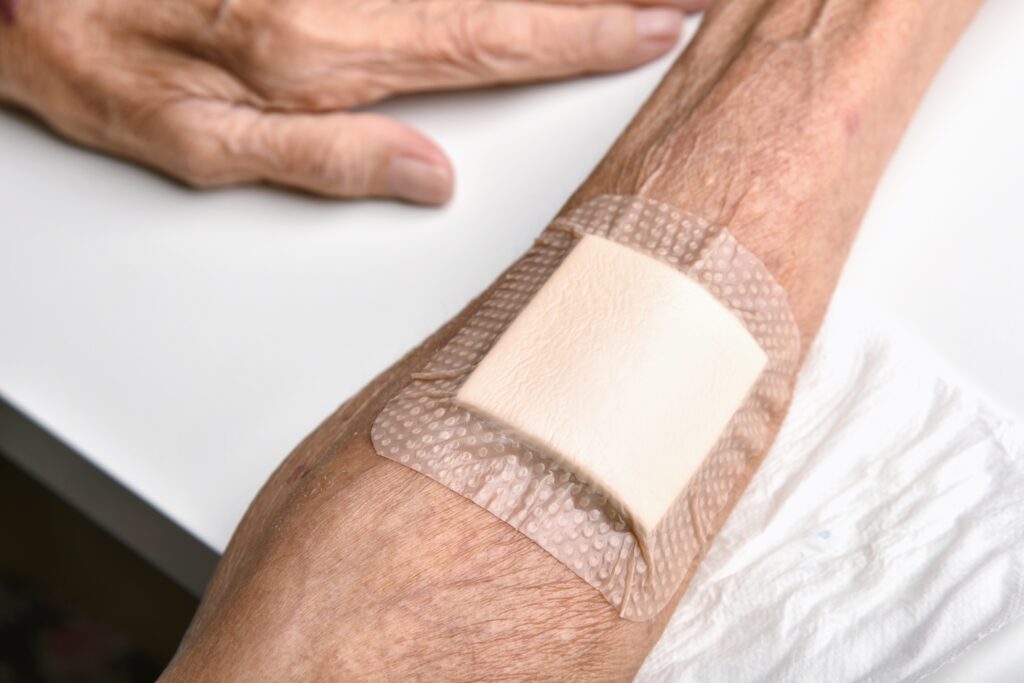As the average life expectancy rises so too does the chance of being diagnosed with diabetes, with the condition being a growing problem among the more elderly members of our community. As we grow older, our bodies undergo a wide range of physiological changes, and because of this, older people who are either developing or HAVE developed diabetes, might not be showing the obvious signs of the condition that you might expect – making the condition harder to spot and diagnose.
Diabetes is a chronic disease that affects an estimated 33% of those over the age of 65, and is caused either by the body not producing enough insulin, not using insulin effectively, or both. This leads to too much glucose in the bloodstream, which can cause numerous health problems, with symptoms ranging from mild to severe. Untreated diabetes can lead to long-term complications and even death.
Type 2 diabetes is the most common form of the illness, and nearly half of those diagnosed with type 2 diabetes are over the age of 65. Of course, the condition is serious at any age, but for older people the risk of developing related problems such as heart disease and kidney failure is far greater. The signs that an elderly loved one could be developing diabetes is something that we should be looking out for, as the earlier the condition is diagnosed and treated, the better the chances of living comfortably with the illness.
But what are the signs that an older person may have diabetes? Care In Kent takes a look at some of the most common (and not so common!) warning signs.
The ten signs of Diabetes we will discuss in this article are:-
1. An Increase In Thirst And Urination

Let’s start with one of the most well-known symptoms of diabetes – increased thirst and urination. The excess glucose in the blood caused by diabetes means that the kidneys have to work hard to filter it out. This excess glucose is excreted into the urine, taking fluids from your body with it, dehydrating you and making you feel more thirsty. If you’re noticing that your elderly loved one is feeling thirstier and drinking more than normal, and urinating more frequently as a result, it could be a sign of type two diabetes.
2. Fatigue

Tiredness is not uncommon in older people, so being aware of your loved one’s patterns when it comes to energy levels, afternoon naps etc is important if you are trying to rule fatigue out as a symptom of diabetes. If an older adult in your care seems more sluggish and lethargic than normal, you should contact their GP with your concerns. High blood sugar levels make it hard for the body to convert the glucose into energy, leading to a lack of energy.
3. Headaches

A steady and constant supply of glucose is essential for good brain function, but dips and spikes associated with diabetes interfere with it, leading to headaches – particularly in older people. Again, the more you know about your loved one’s health and habits, the better when it comes to a diabetes diagnosis. If someone in your care is suffering from more headaches than is normal for them, contact a GP.
4. Dizziness And Fainting

Hypoglycemia is a common condition associated with diabetes that occurs when a person’s blood sugar level dips below 70 mg, and it is common in older sufferers. When glucose levels get this low, the patient can feel weak, dizzy and confused, and may even faint. Thankfully these levels can be quickly elevated with glucose tablets or by sipping fruit juice, but medical attention should be sought so that a proper diagnosis can be made, and that other reasons for fainting and dizziness can be ruled out.
5. Blurred Vision

Problems with our sight are not uncommon as we get older, but blurred vision in particular can be a sign of diabetes. When blood sugar levels get too high, it can draw fluid from the eye lenses, making it hard to focus. This serious symptom can cause partial or complete vision loss if not treated, as blood vessels behind the eye can become damaged as new blood vessels are formed behind the retina.
6. An Increase In Appetite

Not usually something seen as a problem for older people – in fact, a lot of carers are delighted to see someone tucking into their food with gusto! – however, an unusual increase in appetite could be a cause for concern. Being hungrier than usual is a condition known as polyphagia, and can be caused when diabetes prevents dietary glucose from reaching your body’s cells – meaning you’re still hungry even after a big meal. This condition can cause a never ending cycle of eating more, which in turn leads to higher blood sugar levels, and increases your sugar cravings.
7. Tingling In The Hands And Feet

Around 50% of those with diabetes will have nerve damage, and it is most common in those who have been diagnosed with the condition for a number of years. Tingling, numbness, weakness and pain in the hands and feet are known as peripheral neuropathy, and is a symptom to look out for, especially if your loved one has already been diagnosed with diabetes and is receiving treatment
8. Gum Problems

Issues with oral health are not unusual in older people, but if an elderly person in your care is complaining of red, swollen, or painful gums, it could be a sign of diabetes. The condition can cause the immune system to be compromised, increasing the chances of infection in the gums, leading to loose teeth, inflammation, and sores.
9. Dry Mouth

Again, not unusual in older people, but a dry mouth is a common sign of diabetes in the elderly. This is a symptom that may come and go as blood sugar levels fluctuate and is often accompanied by dry or cracked lips and a rough-feeling tongue that can be very uncomfortable.
10. Wounds Are Healing More Slowly

High blood sugar can impede the circulation, which can affect the body’s natural healing process. If you’re noticing that your older loved one has cuts or bruises that are healing slower than you would expect, or they are developing sores or skin infections (particularly on their feet and legs), it could be a sign of diabetes. It’s also worth noting that women who have diabetes can suffer from frequent bladder infections and yeast infections.
If your elderly loved one is experiencing any of these symptoms, seek medical attention. A swift diagnosis and treatment is essential to prevent severe complications down the road, and allows a doctor to tailor a diabetes management plan so that your loved one can continue to lead a healthy and active life.
If you are caring for someone, and need support or information about at-home or respite care, get in touch with Care In Kent today. Our knowledgeable and dedicated team are always on hand to provide the help you need to ensure that those you love can maintain as much independence as possible, for as long as possible.


